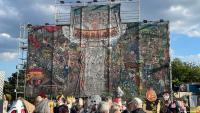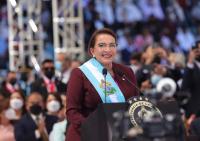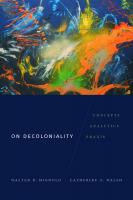politics
Articles tagged with politics
Tag Archive
- 2020
- 9/11
- african art
- African cinema
- Alemanha
- Alqueva
- Amílcar Cabral
- angolanidade
- archive
- art
- arte rupestre
- As Cidades Invisíveis
- black music
- Bruno Pereira
- c
- caboverdiano
- CEDO
- Ceramics
- Circulations
- city
- Coimbra Biennial of Contemporary Art
- colonial memory
- colonial war
- communality
- conclusion
- Content Production
- cotas
- crioulo
- cultura
- dança
- dance company
- Délio Jasse
- Dockanema
- end sars movement
- escritor
- esse cabelo
- eurocentrism
- europa oxalá
- european union
- Exhibition
- exile
- exposição
- Falcão Nhaga
- Flávia Gusmão
- game
- Gegé Mbakudi
- Geo-archaeological research
- George Floyd
- imperialism
- Ingrid Mwangi
- institute
- journey
- judith butler
- justiça social
- Ligue arabe
- Marcelo Ridenti
- Marita sturken
- memória
- memory
- Mississippi
- Monte da Caparica
- moral economy
- morocco
- mozambican artists
- nacionalismo
- naming practices
- national liberation
- nationalists
- neo-animists
- Neocolonialism
- New York City
- nicknames
- Nito Alves
- O que temos a ver com isto? O papel político das organizações culturais
- opression
- PAIGC
- pandemia
- past
- patriarchy
- Pé de Xumbo
- Periferia
- political agendas
- Prints
- production
- public space
- racial segregation
- rap
- restitution of art
- símbolos
- suburb
- Suelny Rolnik
- surname
- Swahili
- Tarrafal
- Teatro Praga
- transnational
- turismo
- Visual Cultural
- William Kentridge
- “Sexual Misconduct in Academia”
 As agitprop, People’s Justice isn’t complex. On the right are the simple citizens, villagers and workers: victims of the regime. On the left are the accused perpetrators and their international accomplices. Representatives of foreign intelligence services – the Australian ASIO, MI5, the CIA – are depicted as dogs, pigs, skeletons and rats. There is even a figure labelled ‘007’. An armed column marches over a pile of skulls, a mass grave. Among the perpetrators is a pig-faced soldier wearing a Star of David and a helmet with ‘Mossad’ written on it. In the background stands a man with sidelocks, a crooked nose, bloodshot eyes and fangs for teeth. He is dressed in a suit, chewing on a cigar and wearing a hat marked ‘SS’: an Orthodox Jew, represented as a rich banker, on trial for war crimes – in Germany, in 2022.
As agitprop, People’s Justice isn’t complex. On the right are the simple citizens, villagers and workers: victims of the regime. On the left are the accused perpetrators and their international accomplices. Representatives of foreign intelligence services – the Australian ASIO, MI5, the CIA – are depicted as dogs, pigs, skeletons and rats. There is even a figure labelled ‘007’. An armed column marches over a pile of skulls, a mass grave. Among the perpetrators is a pig-faced soldier wearing a Star of David and a helmet with ‘Mossad’ written on it. In the background stands a man with sidelocks, a crooked nose, bloodshot eyes and fangs for teeth. He is dressed in a suit, chewing on a cigar and wearing a hat marked ‘SS’: an Orthodox Jew, represented as a rich banker, on trial for war crimes – in Germany, in 2022.  In January 2022, Xiomara Castro became Honduras’s first woman president, restoring electoral democracy to the country after more than a decade of dictatorship. Running with the leftist Liberty and Refoundation (LIBRE) party, Castro’s election breaks with the century-old two-party system that traded power between elites in the establishment National and Liberal parties. With a mandate for transformation and high popular expectations, Castro faces significant challenges in a context of profound systemic crisis.
In January 2022, Xiomara Castro became Honduras’s first woman president, restoring electoral democracy to the country after more than a decade of dictatorship. Running with the leftist Liberty and Refoundation (LIBRE) party, Castro’s election breaks with the century-old two-party system that traded power between elites in the establishment National and Liberal parties. With a mandate for transformation and high popular expectations, Castro faces significant challenges in a context of profound systemic crisis.  There is no Afro-Brazilian art student I have met who is not enthusiastic about Mbembe’s thoughts. This is definitely a good sign; an expression of the growing debate about racism, hidden for too long in Brazil. The current political situation does not leave space anymore for denial. It is also a reflection of two factors: firstly, the complexity of the relation between decoloniality and globalisation in the South; and secondly, the relation between publishing policies and the circulation of critical thought.
There is no Afro-Brazilian art student I have met who is not enthusiastic about Mbembe’s thoughts. This is definitely a good sign; an expression of the growing debate about racism, hidden for too long in Brazil. The current political situation does not leave space anymore for denial. It is also a reflection of two factors: firstly, the complexity of the relation between decoloniality and globalisation in the South; and secondly, the relation between publishing policies and the circulation of critical thought. 